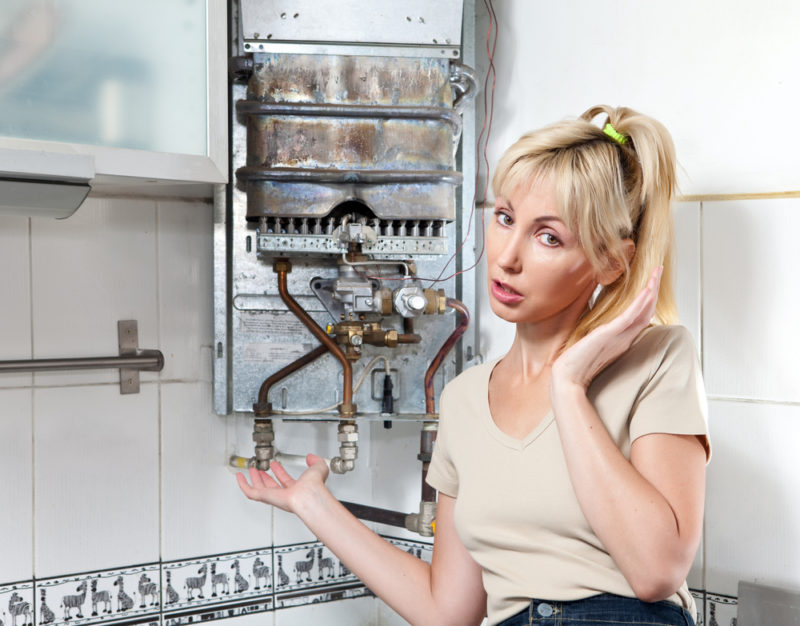Key Steps for House Owners Handling Faulty Heating Units
Key Steps for House Owners Handling Faulty Heating Units
Blog Article
Are you currently on the lookout for know-how on Maintaining & Draining a Water Heater?

Whether it is situated in the basement or a separate room, busted water heating systems can trigger stress and anxiety. Having no hot water supply is also troublesome.
Shut Off Power Source
Before calling the plumber, closed off a gas water heater by transforming the temperature level dial. This will certainly stop electrocution, particularly if there is a leak as water is a conductor. Normally, the home heating component closes off when the water strikes a details temperature level.
Cut Off the Cold Water Supply
Cut off the tanks tap water supply from the resource. This goes from your major water line right into the storage tank. When your tank is in good condition, the cold water quits filling out when the container is full. But since it is dripping, the water will continue to move. Close the valve located on top of the heating unit. Turn this clockwise to shut it off. You need to turn off that primary water supply line outside your residential property if you can not discover it or reach it.
Call the Plumber
After doing the first two safety steps, you should call your plumber to come right away to repair a ruptured water heating unit. There are normally indications that your aging water heater has debris build-up in the interior.
Do not wait for significant flooding to call the plumber. By then, you will certainly need to spend even more to restore your residential or commercial property. Rather, as soon as you identify these signs, have a specialist come to check your water heater give thanks to. Commonly, water heaters have a life-span of regarding 8 to 12 years. With regular assessment and maintenance, you can extend its life.
Clean Up Building
After calling the plumber, document damage by remembering as well as photos so you can claim your property owner's insurance. From there, start the prompt clean-up. Get any important belongings to stop additional soaking. Eliminate any type of standing water to stop mold and mold growth. Use that to drain pipes the water if you have a completely submersible water pump. Otherwise, the traditional bucket method will additionally work. Try to wipe out everything, consisting of wall surfaces and also walls. If you have an electrical fan as well as dehumidifier, keep them going to maintain air distributing. This will certainly help hinder mold development.
Bear in mind, if you see any kind of concerns with your water heating unit, call the pros right away. You can not take this trouble gently due to the fact that a malfunctioning thermostat can elevate water temperature to a hazardously high degree, leading to unexpected burns.
Whether it is situated in the basement or a different area, broken water heaters can trigger tension. Prior to calling the plumber, shut off a gas water heating system by turning the temperature dial. After doing the first two safety actions, you should call your plumber to come right away to deal with a burst water heater. If you have a completely submersible water pump, make use of that to drain pipes the water. Bear in mind, if you discover any kind of issues with your water heater, call the pros right away.
When You Should Turn off Your Water Heater
When the main water supply is shut off
There are many circumstances in which the main water supply is turned off. When this happens, many homeowners wonder if it’s safe to keep the water heater on of it should be shut down too.
In most cases, it may not be necessary to turn off the water heater, but it also won’t hurt, either. However, there are two reasons when you should turn off the unit to prevent too much pressure or heat from building up inside the tank:
When there’s a leak
If your water heater springs a leak due for a variety of reasons, including age or a valve malfunction, you should always turn off the unit and shut off the water supply until the issue is resolved.
https://www.libertyplumbingheatingandair.com/blog/when-you-should-turn-off-your-water-heater/

Do you like reading about Maintaining & Draining a Water Heater? Try to leave a remark down the page. We'd be delighted to know your responses about this write up. We hope that you visit us again in the future. For those who liked our blog post please do not forget to pass it around. I value reading our article about How to Avoid a Broken Hot Water Heater.
Quality-driven emergency plumbing solutions. Report this page